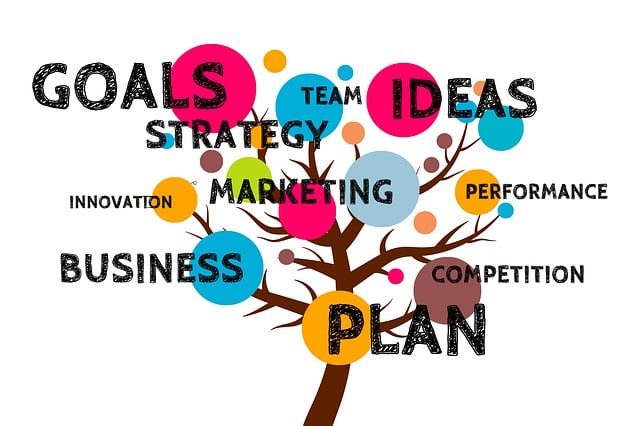Local businesses can significantly benefit from integrating community engagement into their event planning strategies. These events not only serve as platforms to celebrate local culture but also offer opportunities for brand visibility, customer engagement, and economic growth. Successful community-centric events are the result of a deep understanding of the local interests, demographics, and neighborhood character, often achieved through partnerships with community leaders and organizations. These events should be strategically planned, with clear objectives, appropriate budgeting, and targeted marketing to ensure they resonate with the audience and deliver a memorable experience. Data-driven insights are crucial for event success, requiring careful selection of venues, effective logistics management, and strategic use of vendors. Post-event analysis using event planning software helps in evaluating performance against key metrics like attendance rates and ROI, allowing for continuous improvement and aligning future events with the preferences of the community. By focusing on these aspects, local businesses can enhance their community connection, foster economic prosperity, and establish themselves as leaders in event planning through "Event Planning for Local Businesses."
Local business events serve as vibrant touchpoints between brands and their communities, fostering relationships and driving economic growth. This comprehensive guide navigates the nuances of event planning for local businesses, highlighting strategies that harness community engagement, meticulous planning, and targeted marketing to create memorable experiences. From pinpointing the right audience to mastering budget allocation, each aspect is explored to ensure your local event stands out and achieves its objectives. Join us as we delve into the art of orchestrating successful local business events that resonate with attendees and leave a lasting impact.
- Leveraging Community Engagement for Local Business Events
- The Role of Strategic Planning in Local Business Event Success
- Identifying Target Audiences and Tailoring Events to Their Interests
- Budget Management: Maximizing Resources for Impactful Local Events
- Marketing Local Business Events: Creating Buzz and Boosting Attendance
- Evaluating Event Performance and Gathering Feedback for Future Planning
Leveraging Community Engagement for Local Business Events

In the realm of event planning for local businesses, community engagement is a cornerstone strategy that can significantly amplify event impact and success. By actively involving local stakeholders and residents in the planning process, businesses not only foster a sense of ownership and pride among participants but also create a dynamic atmosphere that resonates with attendees. These events become more than just transactions or marketing opportunities; they transform into gatherings that celebrate community spirit and local culture. Businesses that skillfully integrate community feedback and preferences into their event design can expect to see higher attendance rates, increased word-of-mouth promotion, and a stronger, more connected community network. This reciprocal engagement not only benefits the business through increased brand loyalty but also enriches the social tapestry of the area, leading to a thriving local economy where businesses and residents alike prosper.
Crafting events with community engagement at their core requires a deep understanding of local interests, demographics, and the unique character of the neighborhood. Local businesses should consider partnerships with community leaders and organizations to ensure that the events reflect the desires and needs of the people they aim to serve. By doing so, these businesses not only create a memorable experience for all involved but also position themselves as integral and caring members of their community. This approach to event planning can lead to sustainable relationships and ongoing support, transforming one-time events into recurring fixtures that continually attract and engage diverse audiences.
The Role of Strategic Planning in Local Business Event Success

Effective event planning plays a pivotal role in the success of local businesses looking to capitalize on events as marketing and engagement tools. Strategic planning for such events encompasses a detailed approach that aligns with the business’s objectives, target audience, and available resources. By meticulously mapping out goals, defining clear objectives, and allocating adequate time and budget, local businesses can create impactful events that resonate with attendees. A well-thought-out plan ensures that every aspect of the event, from theme selection to post-event analysis, is executed flawlessly. This not only enhances the likelihood of achieving desired outcomes such as brand awareness, customer acquisition, and revenue generation but also fosters a strong community connection, which can be a lasting asset for the business in the long term.
Moreover, strategic planning in local business event success involves identifying key event elements that will engage the audience and achieve the intended objectives. This includes selecting the right venue, coordinating with vendors, managing logistics, and marketing the event effectively. By leveraging data-driven insights and understanding the local market dynamics, businesses can tailor their events to meet the unique preferences of their audience, thus maximizing engagement and ROI. In essence, strategic planning for local business events is a multifaceted process that requires foresight, adaptability, and a commitment to delivering an exceptional experience for all participants involved.
Identifying Target Audiences and Tailoring Events to Their Interests

In event planning for local businesses, identifying target audiences is a pivotal step that sets the stage for a successful event. Local businesses must understand who their potential customers are, what demographics they cater to, and what interests them the most. This involves market research to gather data on customer preferences, behavior patterns, and buying habits within the community. By pinpointing these attributes, businesses can tailor their events to resonate with their audience’s unique desires, thereby enhancing engagement and fostering stronger customer relationships. Tailoring means aligning the event’s theme, content, and activities to match the interests of the target group. This could range from the choice of a venue that appeals to them, the timing that is most convenient, to the type of entertainment or guest speakers that will captivate their attention. For instance, if the target audience includes young professionals, an event might feature networking opportunities and interactive workshops. Similarly, for families, activities like games, crafts, and performances could be included. By customizing events in this manner, local businesses ensure that each attendee feels seen and valued, which is more likely to lead to positive outcomes such as repeat attendance, word-of-mouth referrals, and ultimately, increased sales and brand loyalty.
Furthermore, leveraging data analytics tools and social media insights can provide a wealth of information about audience preferences, helping businesses refine their approach continuously. Event planning for local businesses becomes more than just organizing an event; it’s about creating an experience that stands out in the minds of attendees. This is where understanding and implementing the interests and expectations of the target audience is crucial. By doing so, businesses can differentiate themselves from competitors, making their events a must-attend for the community, thereby solidifying their position as a key player in local event planning.
Budget Management: Maximizing Resources for Impactful Local Events

Effective event planning for local businesses often hinges on the judicious allocation of resources, particularly when it comes to budget management. A well-crafted budget not only ensures that an event aligns with the financial capabilities of the business but also amplifies its impact within the community. Local enterprises must prioritize a clear budget framework that outlines potential revenues and expenses, allowing for informed decisions regarding venue selection, marketing efforts, and vendor contracts. By leveraging free or low-cost local resources and focusing on high-impact, cost-effective strategies, businesses can maximize their event’s reach and engagement. Digital platforms and social media can serve as powerful tools to promote the event without significant investment, while partnerships with other local businesses can share costs and enhance offerings. The goal is to create a memorable experience that resonates with attendees while maintaining fiscal responsibility.
In the realm of maximizing resources for impactful local events, it’s crucial to consider the timing and scale of the event in relation to the business’s objectives. Seasonal events can tap into existing consumer behaviors and trends, potentially drawing larger crowds. Additionally, by understanding the target audience and tailoring the event to their preferences, businesses can foster a sense of community and loyalty. The key is to maintain a balance between scale and financial prudence, ensuring that the event delivers value to both the business and the attendees. Through meticulous planning and a focus on cost-efficiency, local businesses can execute events that are not only memorable but also contribute positively to the local economy and community.
Marketing Local Business Events: Creating Buzz and Boosting Attendance

In the realm of local business events, the key to captivating an audience and maximizing attendance lies in strategic marketing efforts. Event planning for local businesses requires a tailored approach that resonates with the community’s interests and leverages local resources effectively. By crafting a narrative around the event that taps into the collective excitement and curiosity, businesses can create a buzz that piques interest and encourages participation. Utilizing social media platforms, local influencers, and targeted email campaigns to disseminate information about the event can amplify its visibility. Moreover, partnerships with other local entities help in cross-promotion, expanding the event’s reach. Engaging content that showcases the event’s unique offerings, such as guest speakers, interactive sessions, or exclusive deals, can further entice potential attendees. The strategic use of SEO-friendly keywords and engaging visuals in marketing materials not only enhances online presence but also underscores the value and anticipation surrounding the event.
To boost attendance beyond mere buzz, local businesses must integrate a variety of promotional tactics. These include sponsorship opportunities, community engagement through local media outlets, and the creation of compelling event landing pages that highlight the event’s benefits and logistics. Offering early bird specials or limited-time offers can incentivize prompt RSVPs, while follow-up communications keep the excitement alive as the event approaches. By meticulously planning and executing these marketing strategies, local businesses can ensure their events are well-attended, fostering stronger community ties and potentially leading to increased sales and customer loyalty.
Evaluating Event Performance and Gathering Feedback for Future Planning

In the realm of local business events, meticulous evaluation of performance is pivotal to the success and continuous improvement of future initiatives. Post-event analysis involves a comprehensive review of key metrics such as attendance figures, engagement levels, and ROI. Utilizing event planning software can streamline this process by tracking data in real-time, providing insights into what worked and what didn’t. For instance, local businesses can assess the effectiveness of marketing campaigns through ticket sales data or social media engagement rates. This data informs targeted strategies for subsequent events, ensuring a more tailored experience for attendees and a higher return on investment.
Gathering feedback is an indispensable component of event planning for local businesses. It offers a direct line of communication with the audience, allowing organizers to refine their approach. Surveys distributed at the conclusion of an event or through follow-up emails can capture valuable insights. Questions should be crafted to elicit detailed responses about what aspects of the event were most and least enjoyable, what improvements could be made, and what attendees are hoping for in future events. This feedback is not merely for understanding participant satisfaction but also for enhancing the overall event planning process, aligning more closely with audience preferences and expectations. Local businesses that prioritize this feedback loop can significantly elevate their event offerings, fostering stronger community ties and establishing a reputation as a go-to source for quality events.
Effective event planning for local businesses is a multifaceted endeavor that hinges on community engagement, strategic foresight, and meticulous budget management. By identifying their target audience and tailoring events to meet their interests, local businesses can foster meaningful connections and drive economic growth within their communities. The integration of innovative marketing strategies not only generates buzz but also significantly boosts event attendance. Post-event evaluation and feedback collection are crucial for continuous improvement, ensuring that each local business event is more successful than the last. These practices collectively underscore the importance of thoughtful planning in elevating local events and solidifying the role of businesses as vital contributors to community vibrancy.
